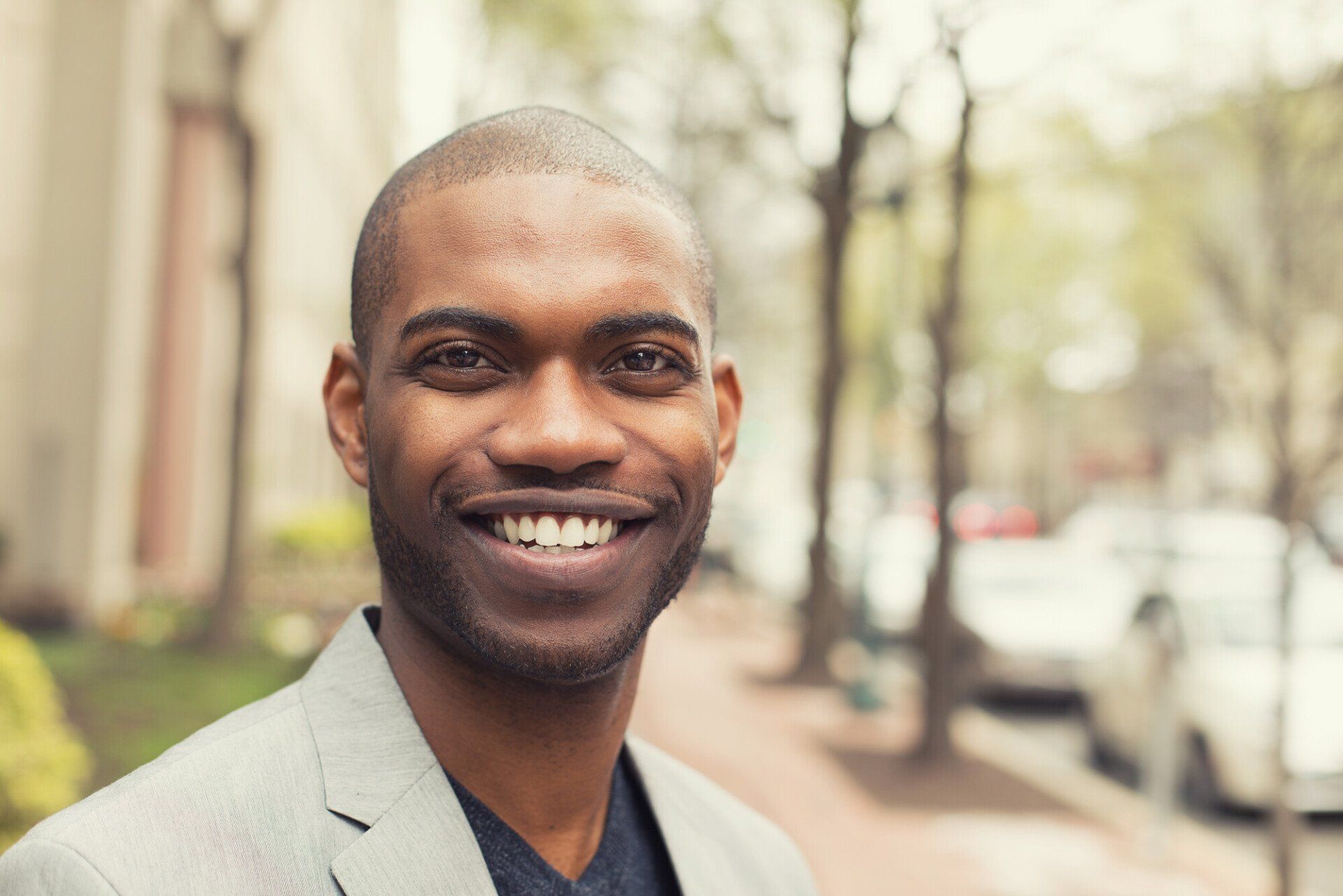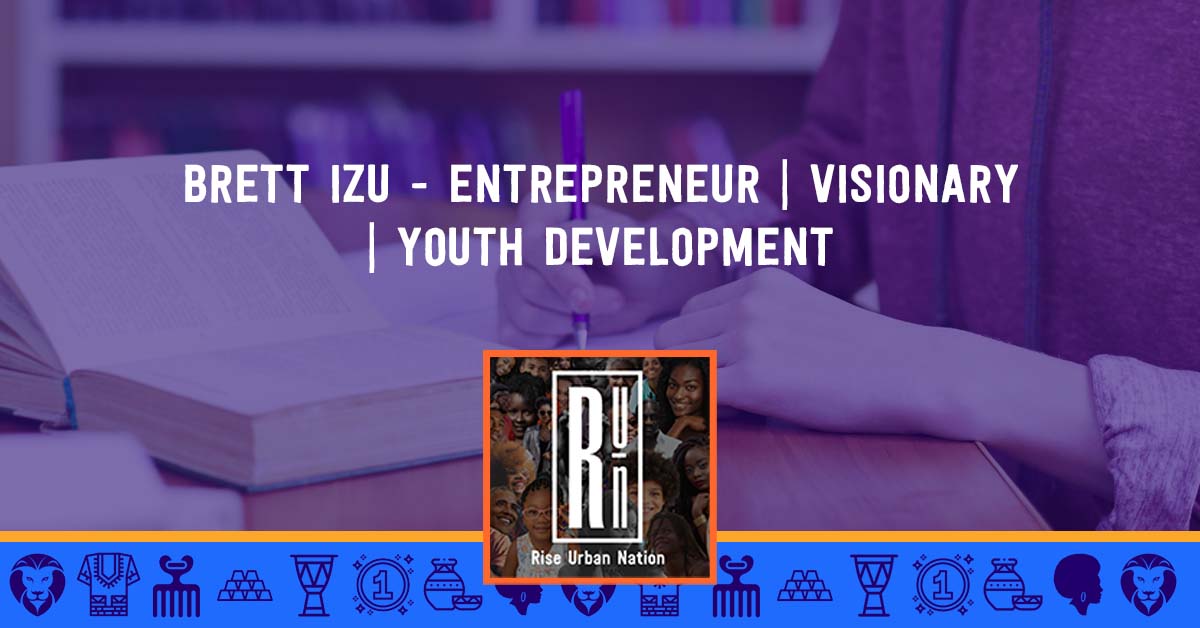Nate Howard - Tell Your Story Before They Do
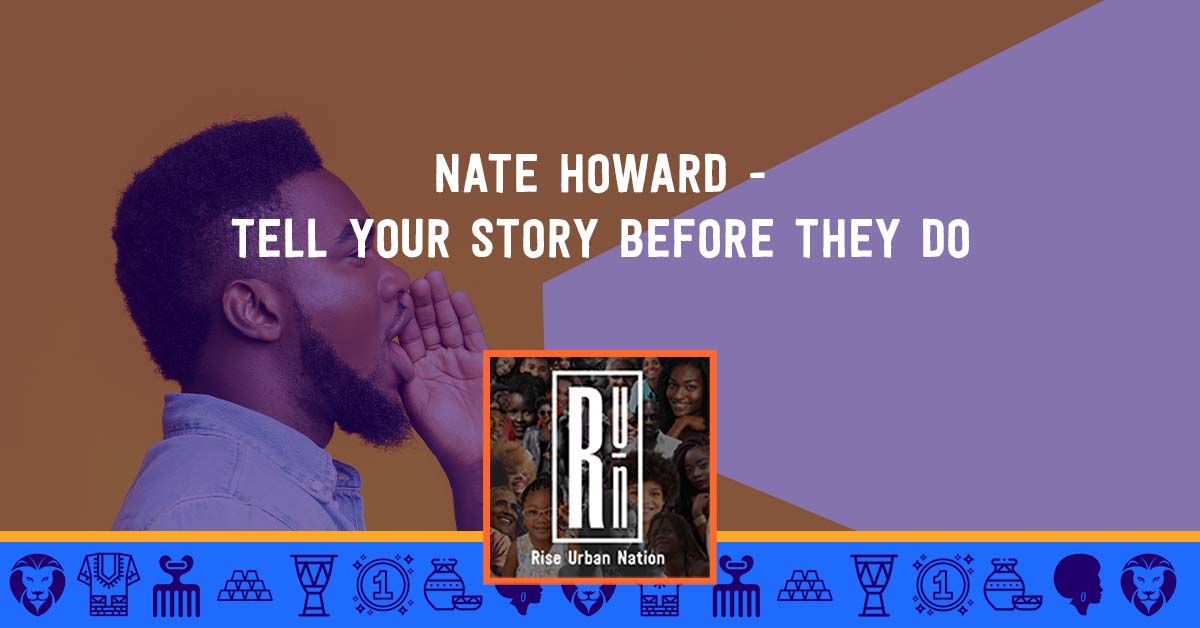
Nate Howard is a professional speaker, poet, educator, and social entrepreneur. In May 2013, Nate made the front page of the LA Times for sparking a movement against racial profiling after 79 LAPD officers shut down his event at USC. Realizing someone was attempting to tell his story, he founded Movement BE, a non-profit organization that helps young people discover their stories. With the motto of “tell your story before they do,” Movement BE has directly impacted thousands of students across the country and even the world. Nate was selected on the inaugural NBCBLK28 list as one of the top 28 black leaders in the nation under 28 years old. He was later featured on the Today Show as one of the "Best and Brightest: Game Changers Making History."
Most recently, Nate was honored in his hometown of San Diego as the " Young Entrepreneur of the Year." Nate’s belief is that we should focus our activism on education, empowering youth to create change so that the movement is proactive and sustainable. Seeing poetry as a means of self-expression, he challenges school systems to see its use as vital for the development of youth, giving them the courage to find their story to challenge the status quo. Nate has recorded his poetry on songs with artists Ty Dolla Sign, Kendrick Lamar, and Dr. Cornel West. Nate is a graduate of the University of Southern California. His biggest inspirations are Martin Luther King Jr. and Maya Angelou.
Connect with Nate:
Movement BE: www.movementbe.com
Website: www.natehowardspeaks.com
Twitter/Instagram: @natehowardbe
Amazon Book Link: Tell Your Story Before They Do: A guide to winning the battle of you versus you
We are currently surveying our listeners (or viewers) to learn more about you. Please take a few minutes and visit our website and click on the 'Listener Survey' link found on the home page. Thank you.
---
Listen to the podcast here:
Nate Howard - Tell Your Story Before They Do
We are in for a special treat. My dear brother, Mr. Nate Howard, is joining us. He dropped a book called Tell Your Story Before They Do: A Guide to Winning the Battle of You Versus You. I remember way back in the day when this was a vision. We go back like bibs and pacifiers. Some people inspire you and this is one of the people that inspire me each and every day to become a better version of myself.
Nate is a professional speaker, poet, educator, and social entrepreneur. He is the Founder and Executive Director of Movement BE. He has taught poetry seminars and self-empowerment over hundreds of schools and performed at over 60 events, including TEDx, SDSU, and the Michelle Obama college signing day at the University of California, Riverside.
He has done multiple types of things, even in his own app that inspires educational learning through this application and social-emotional literacy. I have done several workshops with him as well. It is a pleasure for me to reconnect with him on this show, dive into his book, and talk about life. Without further ado, here is Nate Howard.
---
Nate, it has been a long time coming. Losing DMX was one thing. You re-energized my soul seeing Nate Dogg. I love the cover, too. People don’t know how special this is. We have been through some battles together. We talked about this way before people had even seen it. I’m excited about this. How did you come up with the cover?
I had an original cover without my face on it. It was before I was going to do the tats. I ended up doing a photoshoot to promote the book. I was like, “That photo. There is something about it. Let me try that out with a cover.” I headed out to my guy and I was like, “That is it.” Weeks before the book was supposed to be released, I was like, “We got to change the cover.” That worked.
It reminds me of Young Nick. You are prolific like him. I hope you don’t mind that comparison.
I’m channeling him. Energy is not created or destroyed. I’m Young Nick out here.
That is what I’m talking about. For the readers, welcome to RISEpreneurs. I didn’t do the regular intro because I don’t have a regular guy with me. This is my brother, my confidant, and the creator of energy and flow. There are many words I could use to describe this. I got Nate Howard, the Founder and CEO of Movement BE. We will talk about the book, Tell Your Story Before They Do: A Guide to Winning the Battle of You Versus You. How did you come up with the title? Tell people the backstory for those who have not had the pleasure to know Nate Howard. I’m going to ask you a deep question. You can take this as far as wide as you want. Who is Nate Howard?
Entrepreneur, poet, creative, the Founder and CEO Movement BE. Tell your story before they do has always been my motto. I have been consistent with it. That is what I have been preaching and advocating to inspire people to tell their stories before someone else does. When people read the book, they will read that now is the battle. Don’t look on the outside and be upset at anybody on the outside. Look within and realize you are the author.
When did you first come up with the concept of Tell Your Story Before They Do? Give me the exact moment. What were you doing and what was that like?
I was on a TED Talk at San Diego State in January 2014 and it just came out. My backstory is I had an incident at USC with 79 LAPD officers. I was talking about in this TED Talk of know your history. Know what your father has taught you. Tell your story before they do and that is where it came out. I was like, “That is it.” Since then, I was like, “I got to hold on to this. This is it. This is the key.”
You can't put an entrepreneur in a box. They have a purpose, and they'll do anything to finish that purpose.
I have seen you do that in so many different spaces. You are an entrepreneur, a founder, a CEO, and an author. You have created a software platform. You have done poetry. Career-wise, how would you define yourself? I don’t know how to define you anymore.
I’m blessed and thankful. That is what describes an entrepreneur. You can’t put them in a box. They got a purpose. I’m going to attack that purpose however I can, if it is music, poetry, books, film, fashion, or wherever it is. Wherever I can tell my story, I’m going to use whatever medium that can reach the people to do that. I’m an entrepreneur all around.
In this show, I like to tell the origin story. I like to take people through the journey of people’s careers, not just know what they do but their mindset into how they got to where they got to. As you and I know from working together for a brief moment, mindset is everything when it comes to young people, our people, and Africans out in the diaspora.
It is changing that mindset to a mindset of abundance, owning your story, becoming fully you and where to do that. It is a big part of what is pretty much holding us back. There are some other tangibles to it, but I see that as one of the biggest things. I don’t know if you will agree with that. What do you think holds most people back? Let me not put my words in your mouth.
It is you versus you battle. There is an analogy of a horse tied to a plastic chair. This is a big old horse. You are not tied to this chair. You can move. That is the analogy for life. People are tied to these beliefs that don’t serve them. Nobody cares but you. I’m talking to Taryell. Taryell could think whatever he wanted about me but this is not his story. It is my story. If I sat around thinking about what Taryell thought about me all day, I wouldn’t be succeeding. That is how I live my life. People can think anything of you but they are not the author of your story.
Speak on that now because, in the social media age, people get intertwined with what people think about them that they forget to look deeply and think about themselves.
People try to define things as you did earlier. In reality, you are this or that. How do I describe you? That is what people try to do. “I need to make sense of this. I don’t understand you as a person to define. I haven’t seen this before.” We are all unique. The issue is people try to define themselves based on what other people are saying. Those people don’t even fully understand what they are doing.
I can’t even fully self-define because my story is continuing to grow. It will be limiting to box me in and say, “This is what I am. This is what I’m doing.” I then have to subscribe to that, which is not fully my potential. When people look at social media, they are comparing themselves to something that one entrepreneur or a couple of entrepreneurs created on this social media platform. Your talent has to be limited to a picture with a filter that has to be validated or it has to be limited to 150 characters, adventurer thoughts, or whatever it may be. Step out of the box and think of something bigger.
What social media is doing to us is trying to figure out how do we fit ourselves into the norms that these platforms have created? If you do something outside the norm, they will be like, “Don’t do a throwback. This is not Thursday.” You can take that for example. Whatever these social norms are for social media and how things are supposed to be presented, people subscribe to them, and it allows for everybody else to easily define it for themselves and to simplify for themselves. If you don’t understand me, that is not my issue. It is my story and I’m going to try to create opportunities to share that.
I love that you used that analogy of me doing it right here in real-time. I don’t know how to define you, Nate. For the people reading, I should not have to define you. You define you. Be you. As the shirt says, “Just be.”
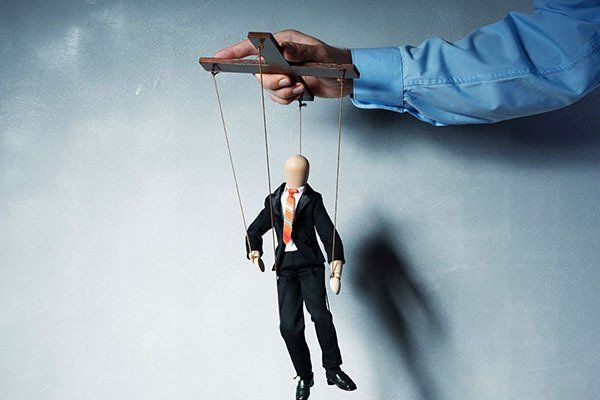 Telling Your Story: The analogy of life is a horse tied to a plastic chair. You're not tied to this chair. You can move. Most people are tied to beliefs that don't serve them.
Telling Your Story: The analogy of life is a horse tied to a plastic chair. You're not tied to this chair. You can move. Most people are tied to beliefs that don't serve them.Think of an art. Think of something like a mosaic or very poetic. You will see all of these different colors like a painting. It is beautiful. It has all of these different pieces to it. The problem is we look at that piece of art and say, “What category does this fit in?” They look at me and you, and they are like, “I know how I can identify them. They are both Black men.” That is simple and it becomes obvious. It is so much deeper than that.
To say that because we are Black, we are the same is idiotic. It is like blackness and Black men are so monolith, and Taryell and Nate are the same people. There is something unique about each of us. When you look at society and politics, even the politics of racial identity and the pandering of things, it is starting to go on more and more. That is what I want to challenge us. I would go deeper into that but it simplifies things to make it easier for media consumption for us to say, “I get that. That is a Black man. This is a stereotype and I understand the stereotypes of Black men. I’m going to leave it at that.”
Let’s take it back for a second because the journey to where you are at now has been a journey, to say the least. I always like to ask this question because I like to give people context that sometimes you got to start. It doesn’t matter where you start as long as you start. Everybody’s starting position is different. The end goal should be whatever that vision you have for yourself to somehow get there and take what you have learned along the way to get there. The first question is, what was your first job?
We were staying out of college. That is where I met you. My first job lasted for two months.
What lesson did you learn in that first job?
I’m an entrepreneur. That is the lesson.
I learned a lot from you too in your first job. I learned that I need to become an entrepreneur to be the best version of myself. I’m still on the journey to win in the battle of me versus me. I don’t want to get too much in the book because I want people to go out and read it. Give me one little nugget. What is something that you learned is the biggest hurdle for people to jump over in the battle of them versus them?
My favorite is when I wrote the book with my dad. Shout out to my dad. It is part of me listening to his advice but also taking my own. Growing up, he always said, “Don’t eat steak on a hamburger budget,” which makes sense. That is financial literacy. As I was talking about sustainability and finances, I said, “Why would I have a hamburger budget if I want steak?” There is a different look at it. That is a big nugget I want people to understand. It takes as much work to make $1 million as it is to make $100,000. It depends on what you are putting your focus on.
What I challenge people in this you versus you battle is being comfortable with success and with finances. It is your ability to be the best version of yourself. I say this in the book, “Be the best version of yourself.” That doesn’t mean 50%. To be the best version of yourself, you have to first see it. I like steak. That is okay. If I decided I wanted to have a steak dinner, I better put my mindset of what it means to have a steak dinner. At the end of the day, I understand people who say, “I want a hamburger budget.” That is fine for you. I have grown up and my dad will tell you, “I have lived a great life.” It is what he was able to provide for me.
I love that advice. Let’s say somebody is reading this, and they are like, “I have been limiting myself. I want this steak. I can’t do it in a corporate world so I’m going to do what Nate did.” What were the steps that you took to get into entrepreneurship and build your career in business?
Google. You have shared a lot of resources with me. I was looking at what you shared about starting a YouTube channel. I see all these YouTubers here. This is not rocket science. Decide on something that you are passionate about. You are not going to do it unless you are passionate about it. I do this because I love it. I’m like, “I get paid to do this and tell people to tell their stories and to share my poetry. It is fun. I don’t work a day in my life.” Do something you love.
We have the whole worldwide internet out here. People act like you have to be famous or you have to have millions of subscribers. Think about your budget. If you need a couple of thousands a month, you probably only need maybe a couple of hundreds or maybe people that believe in you. They can support you. It is all relative.
It takes as much work to make a million dollars as it does to make a hundred thousand dollars. It just depends on what you're putting your focus on.
I would tell people to think, how much do you want to make a month? Work backward and realize, “If I want to make $2,000 a month extra income, maybe I can get 100 people to support me at $20 a month. To get 100 people, I need to reach out to 5,000 people. Out of 5,000 people, maybe 100 will say yes.” I keep being persistent. Over time, it has to work because that is the Law of the Universe. What you preach is what you get out. People don’t give up.
Where focus goes, energy flows. You got to be mindful of that. You spoke to a little bit of my motto, which is, “Do what you love and love what you do. Don’t chase the money and let the money chase you.” What I mean by that is shortly after me and Nate worked together for that brief two months. I started putting more energy into the things that I love to do and this show is being one of them. This show has grown to be what it is now. All the way from the UK to Africa, we got readers and over 1,000 downloads. It has been a beautiful journey. The YouTube channel is covered. That is why I sit on the resource because that is the next stage of this thing.
They will make money out there.
What’s one good lesson life has taught you? He is like, “Life has taught me so many. What am I going to use now?”
This is a good one for entrepreneurs because people don’t understand it. Everything is about sales and negotiable. A quote that Ice Cube told me was, “If you listen more than you speak, you can get anything from anybody.” That stuck with me because I was like, “I do talk a lot. I have a lot to say.” That is important. Other times, I also understand where to listen. That is the important part of business in negotiation. If I come out with my prices or I come out with everything, there is no leverage. If I can have an understanding of what they want, how I can provide, and what their budget is, I can negotiate. Maybe I will charge less or I can be charging more.
Even with Lil Wayne, “All G’s move in silence like lasagna.” If everybody knows what is going and you are speaking and sharing, it is easy to attack your business. If you have enemies, it is easy to undermine you. I think of it as chess. Everything is strategic. You would be two steps ahead. You see the other person’s moves or what they are doing but don’t show all your cards. Be strategic about what you are doing. Not everybody has the best intentions.
What is some advice you would give to someone who would like to start a career in your industry, whether they want to be an author, poet, or follow any of the moves that you have made?
Think of businesses that are going to be around forever. I got friends in real estate. It makes sense. Everybody always needs a place to live. Real estate is a business that is not going anywhere. I’m in education. I don’t think people are going to stop going to school. I will be in business as long as I’m doing right forever. That is important. There are trends that have been here for some time and there are industries that are useful forever.
 Telling Your Story: As an entrepreneur, decide on something that you're passionate about. With the internet, everything you want is out there.
Telling Your Story: As an entrepreneur, decide on something that you're passionate about. With the internet, everything you want is out there.I’m in the education industry. I work with schools, with you, and people are always going to have kids. They are going to grow up and need support. People in my industry, and I say, “Be good with kids. Be good with young people.” If you have little cousins or brothers, learn how to start teaching them and supporting them. Visit your local YMCA or reach out to any youth. What’s interesting is there is a need. How many people are waking up in the morning saying, “I want to go help as many youths as possible.” Maybe there are a few people who do that. If they are, there are still more youth that needs to be helped. There will never be enough.
It always surprises me that people think money can’t be made in this industry and prosperity can’t be made in the space of education. You may be looking at it as one way because they told you, “You have to go to school and become a teacher, and teachers don’t make money.” If that is the path you want to go, great, do that.
For educational entrepreneurs, the sky is the limit. For those who go the traditional route as teachers, what other job do you have 2 to 3 months off? If I know I’m working 9 to 10 months of the year, I better have a summer business. I may have something else on the side that is building on that. For everybody who wants to get into education and work with youth, there are so many opportunities.
Both me and you are a living testament to that because after I broke away from the company that we both worked at, I started getting contracts left and right to come and do workshops for our youth around career development. You do the socio-emotional literacy. You have added some financial literacy in that and a lot of different things that helped you. What I like about the way your thing is set up with Movement BE is that the same youth that has been part of your programs, you have been able to hire, go out, and help youth in other schools. That is a beautiful thing. Was that always the plan in your head?
That has always been the plan. I went to USC. The reality is a lot of students who have come from certain backgrounds can go to college, they graduate. If they don’t have a job after graduation, they can go work for their parents because their parents have this big business. It is like, “You didn’t get a job. Come work for me.” I’m hoping that Movement BE can be the same for a lot of youth. We got a lot of youth that we work within the foster care system. They may not have a parent that they can do that with.
If you went to Movement BE and we have an opportunity, you are going to be the first to get that opportunity because you went through this program. That is how everybody else does it. Does this work? I don’t know what else to say about that. It is the reality of it. The people who have gone through the program understand it better. I can go higher and try to get everybody else, “We have a chapter.” Of course, that is part of what I have to do. I’m required to do that.
At the end of the day, I’m going to give preference to the youth who have been to the program. I’m hoping that they pay it forward and keep it building. That is how we do this work. We are working in juvenile halls and those youth who get out were like, “I was part of Movement BE. I now have the opportunity to work with Movement BE.” It also gives incentives for people to say, “Let me take the training. Let me get involved in the program and hopefully build from there.”
What do you think the future has for the entrepreneur space, especially for people of color in this space? What does it look like when you see it or when you vision it?
There is going to be a bridge at this point. What we realized from 2020 is there were two things that happened, we are seeing George Floyd and then we had this whole pandemic. It was like a race. Technology became huge. At that point, you had Zoom sessions of racial injustice from everywhere. What is going to be interesting is looking at how schools begin to adapt to this hybrid model that now exists.
Schools are going to open back up but it is not going to be the same. The kids are going to have the option, and part of that option is going to have to deal with. As a student, do I feel like I belong? How funny is it that students probably felt more of belonging at their school at home than the actual campus? In the same sense, we are going to have other issues of students who had tough home lives and were at home during this pandemic when they needed to be at school to escape from their homelives.
There is a mix of things that are probably going to happen in the education system. People in this space will have to realize how to play both ends. How do you educate in person and how do you educate online? In regards to Black people and people of color, who are educating those youth to do that? What will happen is the opportunist will say, “I know technology. I know how to create a platform for Black students or students of color. Let me lead this initiative because I have the funding for it.”
They create more of a problem and create probably online racism, more issues of campaigns, hashtags that are temporary, don’t have the sustainability of the money going to the community itself, and a mix of other things. Go to MovementBe.com and sign up. If you want to be part of this movement, I got work for you. We could do some education entrepreneurs together and we can make it happen.
Kids are dropping out of school because it's the same rubric to which you're trying to compare everybody. It's like teaching a fish how to climb.
Let’s talk about the education system for a second. There have been a considerable amount of times where teachers in the school system or administrators are like, “You should think about teaching. Why don’t you come and teach?” I’m pretty sure you have got it. Every time I think about that, I was like, “I couldn’t be a teacher in this system. This system isn’t built for me.” Do you think there needs to be an overhaul of the education system? If so, what changes would you like to see in the school system?
I’m talking to a principal out in Milwaukee, and she is great. She started at a school. All her kids got to go through a coding class, and that is great. I bought domains a while ago that I’m hoping to use called Durag and Code. Hopefully, that is for boys to be in their durag and start coding. I want to be realistic about some of these things. College is not for everybody.
Specifically, in the modern-day, you need college for certain jobs if you want to be a doctor or a lawyer. The digital age has changed so much that you need just a certificate. If you went through a coding program and you know how to work for a company to develop their website or social media, I don’t understand how four years of college will help that for certain people.
I’m also an advocate for college because I had a great experience. It helped me network. I met a lot of different people, but it was for me. A lot of schools are trying to make everybody go that route. The trajectory is you go to high school, you go to a four-year university or even a two-year, and you transfer. That is what success looks like. I would like our education system to have more of a personality test for students and match them to courses and careers.
“I’m Taryell. I’m an ENFJ. Based on my personality, I’m charismatic. I can speak well and I can network. I took my English classes. I took the other requirements or whatever that we still have to do. I had these elective courses that were on this career path. That made me realize that I would be great at having my own podcast and build it from there.” “I’m in high school now. Can I start a podcast?” “Yeah, you can because you know how to use the internet. It is probably great for you to apply the skill that you are learning in school to an actual project.”
“I’m fourteen. I started my podcast in my freshman year. In my senior year, I got 500 subscribers and they are paying me monthly.” At that point, I can decide what route do I want to go. Do I want to maybe go to college? Now that I go to college, I have all of this network of people, I can build my podcast more, and I can learn more. Maybe I have a different career path.
 Telling Your Story: People in education are going to have to realize how to play both ends. How do you educate in-person and online? And in regard to people of color, it's important who's educating those youth.
Telling Your Story: People in education are going to have to realize how to play both ends. How do you educate in-person and online? And in regard to people of color, it's important who's educating those youth.I could go on this tangent but my challenge to schools at this point of why kids are dropping out or getting disconnected is because it is the same rubric that you are trying to compare everybody to. If you are trying to teach a fish how to climb a tree, it is better in water. There is a different animal who can climb a tree better.
If you are trying to take all of these students and make them all the same, that is idiotic. We are not giving them the room to create a better world. We are making everybody factory workers in the same type of system and then wonder why everybody thinks the same. They could go to a meeting and everybody was like, “I agree.” “Do you guys all agree with this?” “Yes, sir.” It is okay to be a rebel. Be a rebel a little bit.
Think for yourself a little bit. You are pretty close. I’m not an ENFJ. I’m an ENFP. I don’t know if you took that randomly or if you guessed. Was that random?
That is random but that was pretty close.
What are you? Are you ENFJ?
I’m one of those. I have to take it again. You know that and now you have a full understanding of your characteristics. It tells you the careers for those types of people. Teachers, counselors, and school helped me with these careers based on my personality.
I like using a little bit of the personality and the skillset because there might be some things that fit my personality that does not fit in my skillset or things that I may not want to do that don’t mirror both of them. If I could get something that mirrors my personality, the things, and the skillsets that I have, that would be a perfect marriage.
I agree with you on a lot of things. You know the government and the No Child Left Behind, which put us towards this model of college for everybody. Less on kids behind because what it did is we started dialing back from the apprenticeships and all those other things that were in schools to give you different career, pathway, and trajectories.
We are paying for it now because of things like the welding industry and so forth. I have been called in to help those programs because those apprenticeships got out of the schools and there is a need for them now. These are great-paying jobs. These people make $80,000 to $100,000 a year after doing an apprenticeship. They are getting paid to learn, pension plans, and travel the world on the company’s budget. I’m like, “A lot of people would probably want to go this route if they knew it was available to them.” It is the same thing as you talked about with the tech.
I love that you are bringing that into focus for us. When you look at the future of what you have been able to do and some of the things that you are talking about that could be done in a school system, what is the best way for schools to start partnering with programs like Movement BE to get them in their school system? We can at least start training in that way because a lot of the people think, “It is so hard to do. I don’t know how to connect with the Movement BE. How do I do it and get Movement BE programming to my school system?”
That has been an interesting approach. Part of it is we may have to go to a policy. That is the strategic route. It is almost saying, “This is a curriculum on racism. Would you like to have it?” A school is saying, “No. We are fine and we are not racist at all.” It was like, “You need this curriculum.” All the teachers who are trying to say, “Taryell, you need to become a teacher because they need training.” They don’t know how to deal with a young Black man.
I’m making an assumption but typically, those people who are saying that you need to become a teacher, it is because they don’t have the skillsets that you have to reach the students. That is the reality. “I have a young Black man in my class. I’m not Taryell. I don’t know how to educate him. I’m a White woman trying to connect with this young Black man.” Young Black men just see other Black men. It is the truth of it and representation matters. It is the importance of fatherhood and positive role models.
What I’m saying is there aren’t enough Black male educators. At the end of the day, I do a lot of staff development and professional development. I’m going to go into those schools and look at those teachers and say, “This is what needs to be done. This is the reality. You are working with a young Black man and we had another case.” There are too many hashtags to name at this point. “You are going to go in with curriculum trying to teach these kids what you think or assume that they should be learning about this. That is not how it is going to work. This is not optional.”
The truth is that black men need to see other black men as teachers. There aren't enough black male educators.
What we are moving to at this point is looking through the State of California how to social-emotional learning specifically transformed to social-emotional learning, dealing with students of color, and dealing with these issues of equity. How is this implemented into the schools across the state? Based on that model, why don’t we scale that so that this is implemented in schools nationwide?
Of course, there are going to have ways of how to partner but the how is always worked out, Taryell. It is not like, “That is paperwork.” It doesn’t matter how. The goal is, “This is what’s happening. This is what we are doing. It is going to look different at all these different schools and may fit in an after-school program here. It may fit in an English class here. It may fit somewhere else, but this is what is going to happen.”
I support that movement wholeheartedly. We have done a lot of great work together in the classroom. I hope that we continue to do this movement and I’m hoping that we get this Opportunity Youth Summit back up. Can we get another Movement BE in the Opportunity Youth Summit? Can I speak that into existence?
Only if you got a poem, Taryell, because you still need to return home from several years ago, that is natural, too. I have been waiting for it. I’m thinking of making the podcast a little better. You just have the intro.
I’m going to deliver that poem to you.
You said that a few years ago. I’m not hearing it. I need to see you at one of these open mics in San Diego.
I got to keep it real with you. I was thinking about that, too, before we got on to this episode. I was like, “It would have been dope if I had the poem ready and I busted out with it on this episode.”
All readers, hold him accountable.
He challenged me years ago to write a poem and I said I would, so I still owe him the poem to this day. Hold me accountable. He came out with his book before I came out with my poem.
I don’t want to come up with a second book before your poem.
We could talk forever, but let’s end it on this, though. What projects are you working on? Where can people find you?
NateHowardSpeaks.com is where my speeches and everything are. MovementBE.com is where I’m trying to build. Reach out to me at Nate@MovementBE.org. If you work in a school in any capacity, teacher, counselor, or a champion for school, that is what I’m trying to connect with. What we are trying to do is we are gamifying the platform. We will have avatars. You will be able to play word games. We are trying to look at this education platform as an opportunity to have fun. When you are having fun, you enjoy your work more.
That is the biggest disconnect for our young people of color. We like to be entertained and educated. We are great at both of those things.
Think about memorizing songs. It is like, “Why is it hard to memorize stuff for school?” Put it in a song. That is easier to memorize. That is our goal. Taryell, I’m hoping that we can still work together because you are a charismatic, fun person. I want people to see Movement BE like, “I can recreate school for a day. I went through Movement BE and I laughed, cried, and fell down on the playground, but I got up and I was still determined. At the end of the day, I understood my personality, found my purpose, and achieved my greatest career goal.” That is what I want people to see us and that is what we are building.
I’m going to put this into existence, too, that we are going to have the opportunity to work together again. I was in a high school one time and this high school dad called me to do some diversity inclusion training that the students wanted. They had a training session before that on stocks. They were learning stocks in high school. I was like, “What high school was this?” Did you learn stocks at high school? I didn’t learn stocks.
That was interesting. I took one class in high school and it was my Economics teacher. He was the only teacher who introduced us to it, but I forgot about it until I had maybe a little cash to play around with anymore.
These kids are full-blown learning how to play the stock market and what was the entry point that they could put. It was a little $25 and now they are living in Belltown. They come out of college and they have a couple of thousand. They were learning that, and I was like, “I didn’t have this in high school.” We will work together again and I can’t wait for that day to come. Is this new Movement BE? Do I need to get the upgrade?
No. This is what I found on Facebook. Do you know those ads that pop up?
Yeah.
They work. I was like, “I like that hoodie.” You see those Facebook and Instagram ads, scroll, and then you are like, “I like that.” I don’t know who this is. I have just seen it on Facebook and I bought it. I’m also hearing stuff, so I got you.
Nate, are there any last words do you want to leave the people with anything?
Get the book on Amazon, Tell Your Story Before They Do, and read it. I’m hoping people get inspired by this book. It is one of those things where it is a reminder for myself and all of us the power of your mind. Don’t think about the outside. Shape who you are from the inside. It is almost like you are writing your book. Think of your greatest version, write it, and then begin to believe it. People have to accept it because it is your book. I still got the approved copy. I still got to get the original copy. Taryell, thank you.
I’m definitely going to read it, Tell Your Story Before They Do: A Guide to Winning the Battle of You Versus You. Nate Howard, it has been a pleasure. Have you grabbed the book? If you are in the education space, connect with Nate to the Movement BE platform and see what he has got going on. Let’s work together. Let’s start the build and shape the future.
I do music. I have been on staff with Ty Dolla $ign and Kendrick. I love music, but literacy matters. I’m challenging the hip-hop community and the Black community. There is a reason why they hid books away from us. Wake up and read. I want to get on that movement. If you want to get on that movement, which I know you are, Taryell, let’s get more people to read. It is okay to read.
Take a book, read a book, and start with this one.
I did have a friend reach out to me like, “I don’t read but I got your book.” I was like, “You got to read it.” He is like, “Audiobook will come out soon. I’m waiting.” You can listen, too, but literacy is in play.
There is something that you pick up differently from hearing audio versus the visual of reading it. Some certain points stick better than others, and then you could take that and transcribe that to create your own vision. Nate Howard, thanks for being here with us. I appreciate you as always. I can’t wait to reconnect again.
Important Links:
- Tell Your Story Before They Do: A Guide to Winning the Battle of You Versus You
- Movement BE
- NateHowardSpeaks.com
- Nate@MovementBE.org
- https://www.Instagram.com/NateHowardBe/?hl=en
- https://Twitter.com/NateHowardBe
About Nate Howard
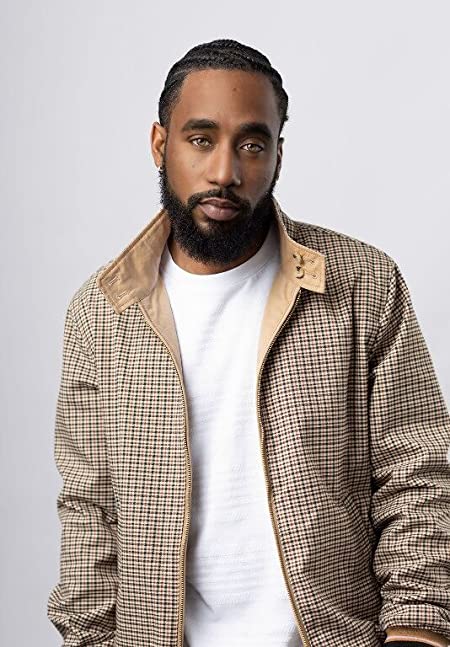
Nate Howard is a professional speaker, poet, educator, and social entrepreneur. In May 2013, Nate made the front page of the LA Times for sparking a movement against racial profiling after 79 LAPD officers shut down his event at USC. Realizing someone was attempting to tell his story, he founded Movement BE, a non-profit organization that helps young people discover their story. With the motto of “tell your story before they do,” Movement BE has directly impacted thousands of students. Nate was selected on the inaugural NBCBLK28 list as on of the top 28 black leaders in the nation under 28 years old. He was later featured on the Today Show as one of the "Best and Brightest: Game Changers Making History."
Nate’s belief is that we should focus our activism on education, empowering youth to create change so that the movement is proactive and sustainable. Seeing poetry as a means of self-expression, he challenges school systems to see its use as vital for the development of youth, giving them the courage to find their story to challenge the status quo.
Nate has recorded his poetry on songs with artists Ty Dolla Sign, Kendrick Lamar and Dr. Cornel West. In October 2021, Nate appeared on Netflix’s “Song Exploder” for his contributions on Ty Dolla Sign’s song “LA.”
Nate is a graduate of the University of Southern California. His biggest inspirations are Martin Luther King Jr. and Maya Angelou.



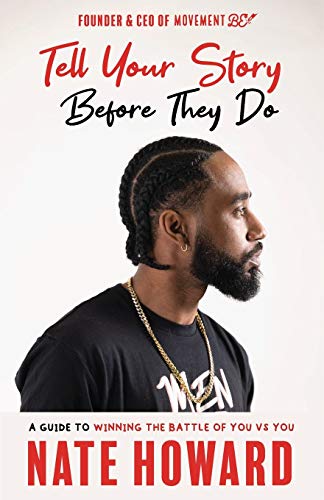 Tell Your Story Before They Do: A Guide To Winning The Battle Of You Versus You
Tell Your Story Before They Do: A Guide To Winning The Battle Of You Versus You
